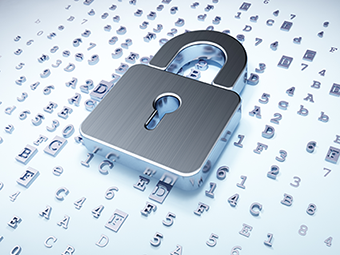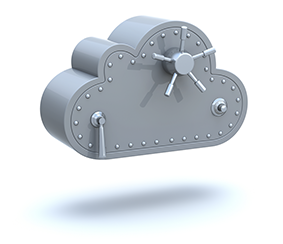 Every day, millions of individuals upload pieces of their lives to the ‘cloud’. Our business operations and data about our clients and employees are spread across server rooms scattered all over the globe. We continue to become increasingly dependent on data, yet very few are aware of the dangers they are exposed to when it comes to data safety, say Raquel de Oliveira Barra and Shi Rongfeng of Freudenberg IT. Very soon, with the advances of Industry 4.0 and the Internet of Things, data will be automatically compiled, interpreted and actioned without the need for human interaction. With China’s Made in China 2025 initiative also promoting greater integration between manufacturing and technology the risks may be set to increase for a number of companies.
Every day, millions of individuals upload pieces of their lives to the ‘cloud’. Our business operations and data about our clients and employees are spread across server rooms scattered all over the globe. We continue to become increasingly dependent on data, yet very few are aware of the dangers they are exposed to when it comes to data safety, say Raquel de Oliveira Barra and Shi Rongfeng of Freudenberg IT. Very soon, with the advances of Industry 4.0 and the Internet of Things, data will be automatically compiled, interpreted and actioned without the need for human interaction. With China’s Made in China 2025 initiative also promoting greater integration between manufacturing and technology the risks may be set to increase for a number of companies.
Unless corporations are willing to bring back endless archive rooms full of paper files, digital data dependency is here to stay and growing exponentially stronger. We are reliant on having all our important data stored in our in-house or third-party servers and, in most cases, blissfully unaware of the dangers involved until a disaster occurs.
Nowadays, corporate data is vulnerable on two main fronts. The first is the physical location, including the system architecture where the data is stored, the servers and the systems they run. The second is data theft, with this threat mostly coming internally from a company’s own employees. Yet China owns some of the most technologically advanced data protection systems in the world—technology that was made in China, for China—that sets extremely high standards, and it also has the manpower to implement it. It is therefore something of a paradox that a number of industries in China, such as manufacturing, are still extremely underdeveloped in terms of data protection.
Part of the problem takes root during the initial setup phase of a company. At that stage, most companies are more concerned about their clients and suppliers to even consider investments in data safety, and to an extent this is understandable. It doesn’t make much sense, especially for manufacturing companies, to spend as much on their IT department as they spend on their production lines. However, unless you run your entire production process manually and your factory owns no computers at all, you will certainly require some level of data protection – the decision of how much to invest requires careful consideration.
 Regardless of the nature of a data disaster, whether it is related to the setup of physical data storage or data theft, once it happens most companies take years to recover, some never recover at all. Examples such as the 2014 attack carried out on Sony Pictures or the 2015 Ashley Madison scandal demonstrate that nobody is 100 per cent safe from data exposure. In over 10 years of operations in China, we have seen all levels of data negligence, ranging from companies that, for economic reasons, decided to set up server rooms without climate control in regions with over 95 per cent humidity, to others that install their servers’ cabling using low-quality, flammable materials.
Regardless of the nature of a data disaster, whether it is related to the setup of physical data storage or data theft, once it happens most companies take years to recover, some never recover at all. Examples such as the 2014 attack carried out on Sony Pictures or the 2015 Ashley Madison scandal demonstrate that nobody is 100 per cent safe from data exposure. In over 10 years of operations in China, we have seen all levels of data negligence, ranging from companies that, for economic reasons, decided to set up server rooms without climate control in regions with over 95 per cent humidity, to others that install their servers’ cabling using low-quality, flammable materials.
Solutions often involve an investment that most companies cannot afford. Setting up the right space, putting in place effective access control systems and getting sophisticated equipment with resilient backup connections is not only costly, it is also not enough. You also need to have trained personnel capable of operating it. Our estimations indicate that less than 20 per cent of companies are proficient in safely backing up their own data. Among those that do, only a fraction are equipped with the technology and trained personnel to be able to check if their backups are really successful, and an even smaller number is capable of running this process on a regular basis. However, small and medium enterprises need not despair. Even with limited resources or expertise, there are plenty of local and international partners operating in China who can save you the trouble by offering a wide scope of IT services, ranging from simple data storage in highly secure Tier IV data centres to managing your entire IT department.
Data safety regulations are becoming increasingly strict all over the world, and particularly in China. Over the next few years, it is anticipated that there will be an increasing trend requiring companies to store more data physically in the country where they operate, and more controls and procedures are expected to increase safety protection, especially when it comes to personal data from clients and employees. However, legislation alone will not keep your company’s data safe from harm. Companies need to become conscious about their own level of potential exposure and act preventively instead of ignoring the problem until it is too late.
Freudenberg IT (FIT) is the Freudenberg Group’s global IT solutions provider. FIT has been a specialist in the needs of small and medium enterprises for over 20 years. Its portfolio covers all facets of the IT Industrial solutions landscape, from managed services through industrial processes, and from SAP consulting to system integration. FIT’s services include solutions that pioneer in Industry 4.0, and it is a trusted partner in major fields of innovation such as Big Data, SAP HANA, Cloud Computing and Enterprise Mobility. FIT Asia operates in some of the safest Tier IV data centres in the world to bring companies peace of mind so they can focus on their business without worrying about IT complexity.


Recent Comments